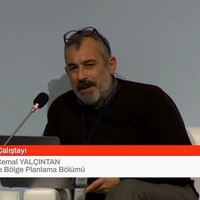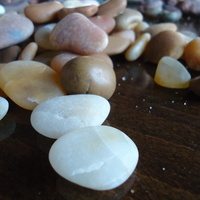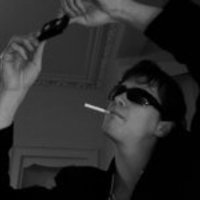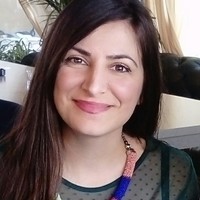
Ryan Reynolds
My current research interests are centered around the course I recently convened - Film as Spectacle and as Story - and I hope to publish several articles based on discoveries during this course. Other current research topics include Authentic Karaoke and Performance Studies' interpretations of film-going experiences. I am interested in the intersection of theatre and film and, in performance, of playing with the interaction of the live and mediated.
I did an Electrical Engineering degree at Purdue University in Lafayette, Indiana, USA, and was lined up to work for Lockheed-Martin - but had some uncertainty niggling me. I came to Christchurch, New Zealand, in February 2000 for a study abroad experience and am still here, now completely occupied by theatre and film, both theory and practice.
I made the transition to Theatre and Film Studies, completing my BA (Hons) in 2001 and my PhD in 2006. My participation in (unorthodox) theatre productions with Free Theatre Christchurch led me to a political awakening of sorts and also to a peculiar curiosity about Political Theatre in a Post-Political Age - the title of my thesis and subsequent book.
I now teach Theatre and Film Studies at the University of Canterbury. This year I am convening two 2nd year film studies courses: Film as Spectacle and as Story and Popular and Art Film. I co-teach the 3rd year Film and Modernity course.
I continue to work with Free Theatre Christchurch (www.freetheatre.org.nz), the company with which I had my first theatre experiences back in 2000. Our last few productions have garnered national and international attention and several awards and nominations.
Since 2003 I have been President of the Canterbury Film Society and, more recently, Vice President of the New Zealand Federation of Film Societies, with roughly 2000 members nationwide.
I did an Electrical Engineering degree at Purdue University in Lafayette, Indiana, USA, and was lined up to work for Lockheed-Martin - but had some uncertainty niggling me. I came to Christchurch, New Zealand, in February 2000 for a study abroad experience and am still here, now completely occupied by theatre and film, both theory and practice.
I made the transition to Theatre and Film Studies, completing my BA (Hons) in 2001 and my PhD in 2006. My participation in (unorthodox) theatre productions with Free Theatre Christchurch led me to a political awakening of sorts and also to a peculiar curiosity about Political Theatre in a Post-Political Age - the title of my thesis and subsequent book.
I now teach Theatre and Film Studies at the University of Canterbury. This year I am convening two 2nd year film studies courses: Film as Spectacle and as Story and Popular and Art Film. I co-teach the 3rd year Film and Modernity course.
I continue to work with Free Theatre Christchurch (www.freetheatre.org.nz), the company with which I had my first theatre experiences back in 2000. Our last few productions have garnered national and international attention and several awards and nominations.
Since 2003 I have been President of the Canterbury Film Society and, more recently, Vice President of the New Zealand Federation of Film Societies, with roughly 2000 members nationwide.
less
Related Authors
James Elkins
School of the Art Institute of Chicago
David Seamon
Kansas State University
Asli Odman
Mimar Sinan Fine Arts University
Egil Bakka
Norwegian University of Science and Technology
William Brown
University of British Columbia
Diane Favro
University of California, Los Angeles
Eleni Papalexiou
University of the Peloponnese
Maja Vasiljevic
University of Belgrade
Garnet Hertz
Emily Carr University of Art and Design
InterestsView All (8)









Uploads
Books by Ryan Reynolds
Reynolds approaches this topic through four primary case studies. Two of the case studies, Reverend Billy’s Church of Stop Shopping and the Critical Art Ensemble, are highly-regarded practitioners based in the United States. The other two case studies are lifted from the author’s own experience with Free Theatre Christchurch: an original production called Christmas Shopping and a devised production of Karl Kraus’ play The Last Days of Mankind.
These case studies lead to the determination that creating aesthetic experiences and actions – as opposed to having explicitly political content – can be a strategy or foundation for a radical political theatre that resists, undermines, and at times transcends the seeming inevitability of consumer capitalism. In an age in which any political intervention is seen as senseless disruption, a form of pointless violence, this theatre has adopted the strategies of terrorist actions to have a disruptive effect without positing a specific alternative social structure.
Papers by Ryan Reynolds
(Pre)Occupied Territory
Ryan Reynolds (University of Canterbury, New Zealand)
The notion of a theatre of resistance implies a society of coercion. It is difficult, but necessary, to gauge the efficacy of such theatres at a time in which everything, and consequently nothing, is political. That is, almost all theatres today proclaim a politics, and yet there is widespread resignation regarding the inevitability of capitalism – which is itself the predominant coercive force. This article proposes a theory of resistance via the theatre: radical theatre today must assume that our nations and we ourselves have become (pre)occupied by this coercive force and therefore, like the French Résistance during German occupation, must act “underground” and employ a strategy of “moving targets”.
I evaluate a performance from my own experience with the Christchurch Free Theatre: a devised production of Karl Kraus’ play The Last Days of Mankind that occurred uninvited in public spaces primarily to unsuspecting audiences. This case study led to the determination that, in an age in which any political intervention is seen as senseless disruption and a form of pointless violence, theatres of resistance must employ strategies increasingly similar (as with the Résistance) to those of
terrorist actions.
Reynolds approaches this topic through four primary case studies. Two of the case studies, Reverend Billy’s Church of Stop Shopping and the Critical Art Ensemble, are highly-regarded practitioners based in the United States. The other two case studies are lifted from the author’s own experience with Free Theatre Christchurch: an original production called Christmas Shopping and a devised production of Karl Kraus’ play The Last Days of Mankind.
These case studies lead to the determination that creating aesthetic experiences and actions – as opposed to having explicitly political content – can be a strategy or foundation for a radical political theatre that resists, undermines, and at times transcends the seeming inevitability of consumer capitalism. In an age in which any political intervention is seen as senseless disruption, a form of pointless violence, this theatre has adopted the strategies of terrorist actions to have a disruptive effect without positing a specific alternative social structure.
(Pre)Occupied Territory
Ryan Reynolds (University of Canterbury, New Zealand)
The notion of a theatre of resistance implies a society of coercion. It is difficult, but necessary, to gauge the efficacy of such theatres at a time in which everything, and consequently nothing, is political. That is, almost all theatres today proclaim a politics, and yet there is widespread resignation regarding the inevitability of capitalism – which is itself the predominant coercive force. This article proposes a theory of resistance via the theatre: radical theatre today must assume that our nations and we ourselves have become (pre)occupied by this coercive force and therefore, like the French Résistance during German occupation, must act “underground” and employ a strategy of “moving targets”.
I evaluate a performance from my own experience with the Christchurch Free Theatre: a devised production of Karl Kraus’ play The Last Days of Mankind that occurred uninvited in public spaces primarily to unsuspecting audiences. This case study led to the determination that, in an age in which any political intervention is seen as senseless disruption and a form of pointless violence, theatres of resistance must employ strategies increasingly similar (as with the Résistance) to those of
terrorist actions.